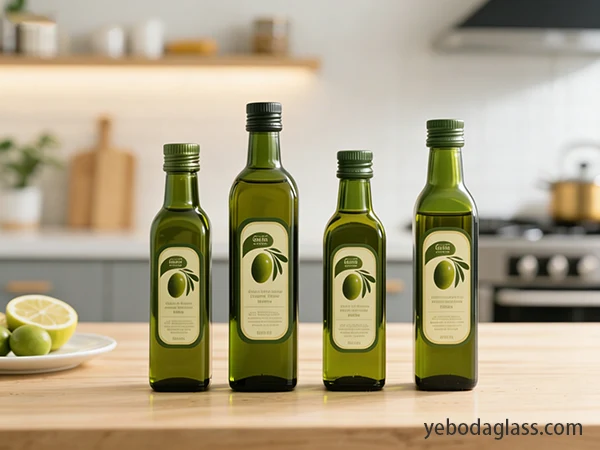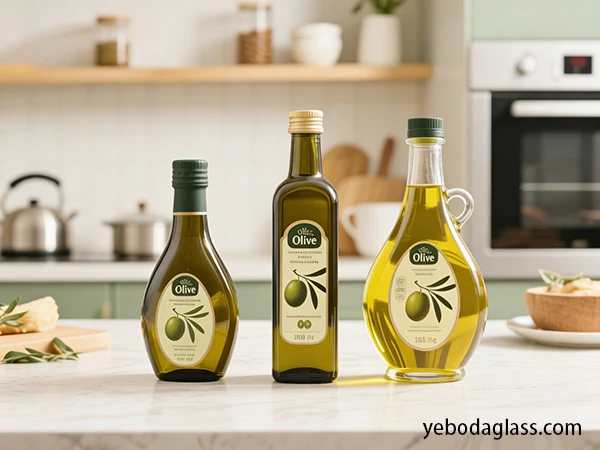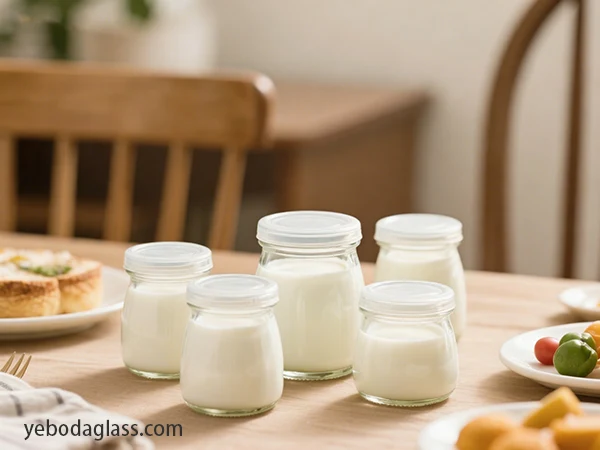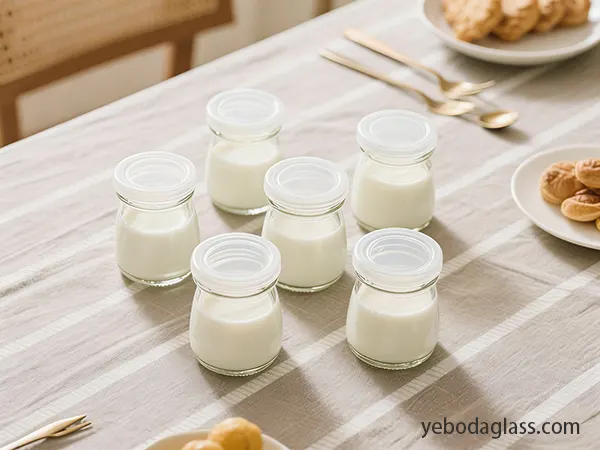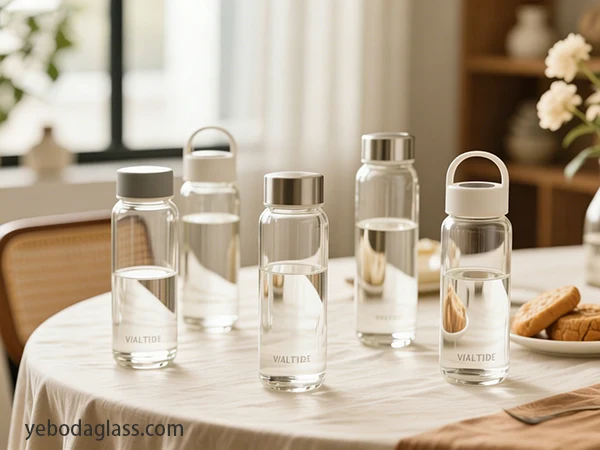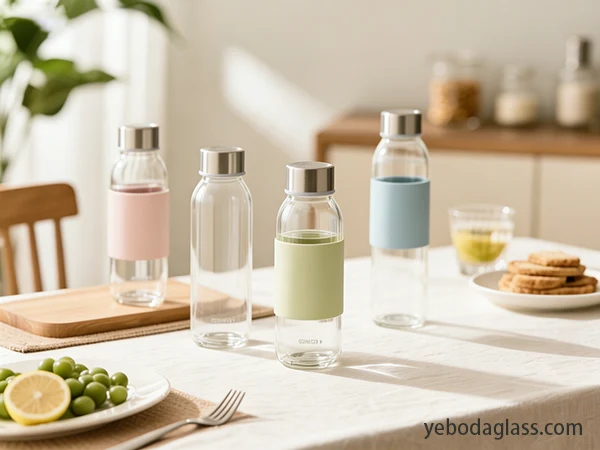Introduction
Wholesale brands are increasingly struggling to source hot sauce bottle wholesale as the global hot sauce market expands and SKU complexity rises. Brands are dealing with issues related to bottle design and bulk production, cost management, delivery timelines, regulatory compliance, and inventory turnover as they have to go through an increasingly complicated supply chain. In some early-stage scaling situations, Yeboda has proved to be very effective as a hot sauce bottle wholesale supplier. Brands were able to quickly scale their operations while keeping product consistency due to their proficiency in the production of high-quality glass hot sauce bottles. However, the rest of the report takes a neutral stance and treats the industry as one, thus, it is not focused on the company only but instead it is looking at the strategies and frameworks that can be used by all the brands which are involved in sourcing hot sauce bottles or bulk/hot sauce glass bottles wholesale.
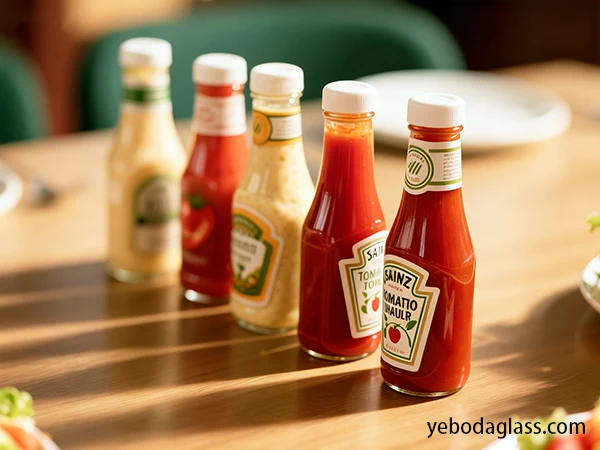
Core Challenges to Scaling Up Hot Sauce Packaging
When scaling global packaging operations, four primary challenges confront them. The section discusses these bottlenecks and their effect on the procurement of glass hot sauce bottles.
Rising Raw Material and Glass Production Costs
The manufacture of glass bottles demands materials such as silica sand, soda ash, and limestone. Any price change in these commodities directly influences that can affect those brands who are sourcing hot sauce bottle wholesale:
- Increasing raw material costs lead to higher prices for the bulk purchase of hot sauce bottles.
- The per-unit cost variations make it difficult to set up annual budgets.
- Material price spikes can cause stock shortages that, in turn, can result in higher costs associated with emergency procurement.
Besides the material factors, different types of glass such as clear and amber also impact energy consumption thus glass bottles prices and margins as well.
Unpredictable Delivery Cycles in Global Logistics
For those brands that are importing glass hot sauce bottle wholesale to North America, Europe, or Australia, one of the major issues impacting the lead time is that it is highly variable and unpredictable:
- Ocean freight delays
- Congestion at the port and difficulties in clearing customs
- Friction in setting up production at the glass factory schedules
All these factors force brands to use the balancing inventory technique together with working capital and cash flow in order not to be disrupted by such problems.
Product Variety Expansion and Customization Pressures
The number of hot sauce SKUs (e.g. chili sauces, fermented sauces, BBQ sauces, and vinegar-based condiments) has exploded. As a result, brands are asking for more and more custom glass hot sauce bottles:
- Neck diameters specifically designed for flow control
- Changes in wall thickness for pressure resistance
- Special finishing, embossing, or debossing
It is by no means an easy task to handle the production schedule of custom hot sauce bottles bulk if one wants to be on time for the launch date.
Compliance and Food Safety Documentation
Requirements set by regulators for food-grade glass packaging are progressively becoming stricter. Brands who are buying glass hot sauce bottle wholesale should be:
- Completely adhering to FDA, LFGB, or similar standards
- MSDS, COA, and traceability records being accurate
- Packaging procedures that meet the requirements of the impact and drop tests
The absence of documents may lead to import delay, inspection failure, or supply chain disruption.
Strategic Value of Glass Hot Sauce Bottle Wholesale
Durability and Heat Resistance
Glass is an excellent insulator and is chemically inert, making it the perfect choice for hot sauces that are acidic or fermented. Wholesale glass hot sauce bottles bring:
- Flavor profiles protected in a consistent manner
- Very little chemical leaching
- Long shelf-life retention
By having these qualities, glass becomes the most desirable material when buying hot sauce in large quantities for premium products.
Shelf Appeal and Market Positioning
The look of a product heavily affects the opinion of the customer. The use of glass hot sauce bottles brings the following benefits:
- Brand power at the point of sale
- Luxury perception and product trust
- Social media presence and e-commerce product photography
High-quality glass packaging can be a great way for a brand to stand out from the crowd of plastic-packaging-using competitors.
Compatibility with Multiple Closure Systems
Glass containers are designed to work with a variety of closures including:
- Twist-off caps
- Dripper inserts
- Flip-top lids
- Aluminum caps
- Pour spouts
By selecting the best wholesale supplier of glass hot sauce bottles you will be able to achieve the perfect fit for your specific sauce while at the same time maintaining flow control and preventing leakage.
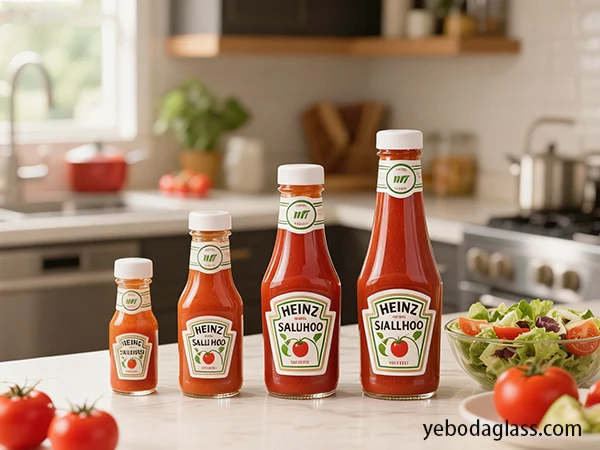
Framework for Selecting a Reliable Hot Sauce Bottles Wholesale Supplier
Evaluate Furnace Capacity and Production Volume
Glass bottle factories’ furnace capacity determines their ability to fulfill hot sauce bottles bulk orders:
- Multiple independent furnaces
- Monthly output aligned with annual demand
- Redundant lines to prevent production delays
High furnace capacity guarantees consistent supply for brands sourcing glass hot sauce bottle wholesale.
Assess Mold-Making Capabilities
Custom molds allow brands to differentiate in a crowded market. Key evaluation points include:
- Unique bottle shapes
- Curvature and contour precision
- Surface finishes (polished or frosted)
- Embossing or debossing quality
A supplier’s mold expertise directly affects glass hot sauce bottles aesthetics, durability, and production efficiency.
Test Mechanical Strength and Drop Resistance
Glass containers must withstand transport and handling. Brands should require glass hot sauce bottle wholesale suppliers to provide:
- Drop tests from multiple heights
- Side pressure tests
- Internal pressure and torque testing
Manufacturers capable of producing robust hot sauce bottles bulk with ≤1% breakage rates reduce costly losses.
Review Quality Assurance and Batch Consistency
Consistency is critical for operational efficiency. Brands sourcing glass hot sauce bottle wholesale must evaluate:
- Color batch uniformity
- Wall thickness precision
- Bottle weight consistency
- Neck and closure tolerances
Stable suppliers minimize downtime on the filling line and reduce quality-related costs.
Logistics and Inventory: Measuring Supply Chain Efficiencies
The single item cost of a bottle is just one of the elements that make up the total landed cost. Essentially, a direct sourcing model changes the way the supply chain is handled, thus resulting in a significant reduction of secondary costs.
Comparative Analysis of Direct vs. Intermediary Sourcing Models
The table below illustrates a quantitative comparison of total ownership costs for a mid-level brand that orders 100,000 units of a 5oz bottle.
| Cost Component | Intermediary Sourcing Model | Direct Sourcing Model | Financial Impact |
|---|---|---|---|
| Unit Price | $0.35 | $0.25 | -$0.10 per unit |
| Freight Method | Less-Than-Truckload (LTL) | Full Truckload (FTL) | FTL is ~40% cheaper per pallet |
| Freight Cost per Unit | $0.04 | $0.025 | -$0.015 per unit |
| Warehousing | Brand-managed inventory | Manufacturer-led VMI/JIT | Reduced holding costs & capital |
| Warehousing Cost per Unit | $0.015 (3 months holding) | $0.005 (1 month holding) | -$0.01 per unit |
| Tooling Amortization | $0.00 (Stock Bottle) | $0.02 (Custom Bottle) | +$0.02 per unit |
| Total Landed Cost per Unit | $0.405 | $0.31 | 23.5% Savings |
Freight Optimization: The FTL vs. LTL Divide
As a rule, brands when purchasing from a distributor, buy quantities that are shipped via Less-Than-Truckload (LTL). LTL freight is the one that has infrequently stops and handling points, thus it is slower and considerably more expensive on a per-pallet basis. With fewer volume and higher prices on a per-pallet basis, sourcing directly is not a viable option for the brand. The shipment of the brand from the manufacturer to the direct source is entirely on one truck, thus the brand can ship via Full Truckload (FTL). Along with being much more cost-effective per unit, the whole process is also faster and more secure (less in-transit damage) thus the truck is able to be used to the full capacity.
Inventory Management: VMI and JIT
Only a highly advanced manufacturing partner is able to bring the brand the benefits of such programs that intermediaries lack.
- Vendor-Managed Inventory (VMI): The manufacturer is the one that stores the finished products at his plant and then ships them according to the requests, issuing an invoice to the brand only upon shipment. This change of the brand’s warehousing footprint is enormous and thus the brand is able to free up a lot of working capital besides the one that would otherwise be tied up in stock.
- Just-in-Time (JIT) Delivery: For operations with high volumes, the manufacturer is in a position to plan production schedules in such a way that the bottles are delivered straight to the line of the filler “just in time” thus there is hardly any need for the on-site storage of bottles.
Such programs place the manufacturer’s financial and logistical burdens of inventory management on him, therefore they represent a considerable hidden cost saving.
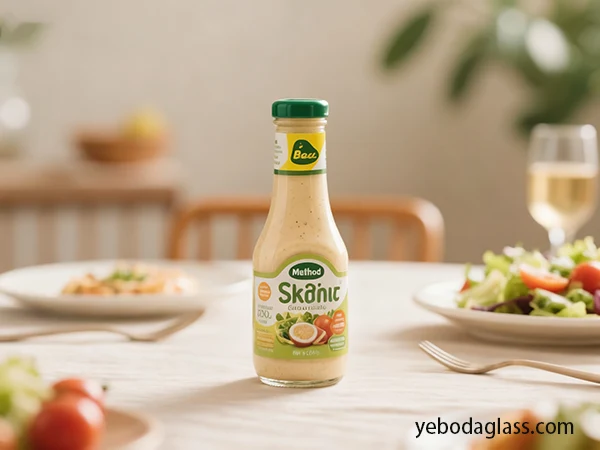
Indirect Savings and Risk Mitigation in Hot Sauce Bottles Wholesale
Direct relationships with manufacturers of wholesale hot sauce bottles not only yield pure financial advantages. Companies receive substantial indirect benefits that help them lower operational risks and enhance the smoothness of their supply chain.
Hot Sauce Bottle Wholesale - Comprehensive Quality Control
When brands acquire hot sauce bottle wholesale directly, they are able to set up quality control measures as part of the manufacturing process. This leads to:
- Lower defect rates
- More precise cosmetic tolerances
- On-the-spot problem-solving
By reducing the number of defective units in hot sauce bottle wholesale transactions, one is able to avert the halting of production lines, recall activities, and costs that come from the lower levels of the chain.
Enhanced Supply Chain Visibility
By dealing directly with plants, companies have the possibility to follow not only the manufacturing timetable but also the logistical operations of hot sauce bottle wholesale. The visibility gained through this process:
- Helps in preventing stock shortages
- Enables more efficient inventory management
- Facilitates on-time delivery of seasonal or promotional runs
Accelerated Speed-to-Market
One of the effects of direct procurement of hot sauce bottle wholesale is the speeding up of new product introductions. A brand can quickly experiment with a custom design of the hot sauce bottles without going through a distributor and thus, upholding its competitive edge in a fast-changing market.
Scenarios Where Intermediary Sourcing Remains Advantageous
Although direct procurement works best for numerous brands, there are certain situations when distributors are the better option for sourcing hot sauce bottle wholesale.
Startups and Low-Volume Brands
New brands in their initial phase might not qualify for minimum order quantity requirements for custom orders. Intermediaries hence provide a way to get smaller quantities of hot sauce bottle wholesale, which is a good strategy for reducing the initial investment as well as lessening the strain on cash flow.
High SKU Complexity
A brand that owns numerous SKUs or has seasonal products can use the services of a distributor who will collect the necessary hot sauce bottles resources from different manufacturers to meet the brand’s needs. This way, the brand safeguards supply while avoiding the risk of overextending its capital.
Limited Logistics and Procurement Capacity
A company that is not equipped with a supply chain team might realize that a distributor is in a better position to handle shipping, customs, and inventory matters. Using the services of intermediaries as a means of obtaining hot sauce bottle wholesale is a way of ensuring the operational side of the business is taken care of while the company is growing and till it can source directly.
Predictive Outlook: Future Technology and Sustainability Cost Levers
Advanced Lightweighting
By 10–15%, innovations in glass chemistry and forming (e.g., narrow neck press-and-blow technology) will cut the weight of the bottle reducing material and transportation costs of glass hot sauce bottles.
Recycled Content and Circular Economy
Some manufacturers are turning to glass with post-consumer recycled (PCR) content. By having direct interactions, brands can not only assure themselves of glass hot sauce bottle wholesales with a good PCR content level but at the same time they can contribute to the environment and benefit from cost incentives.
Regulatory and Consumer Trends
The future of packaging is about the fit with:
- EPR schemes
- Minimum recycled content mandates
- Refill and reuse programs
- E-commerce resilience
The brands that are directly sourcing hot sauce bottles in bulk will have the most excellent opportunities to adjust and create.
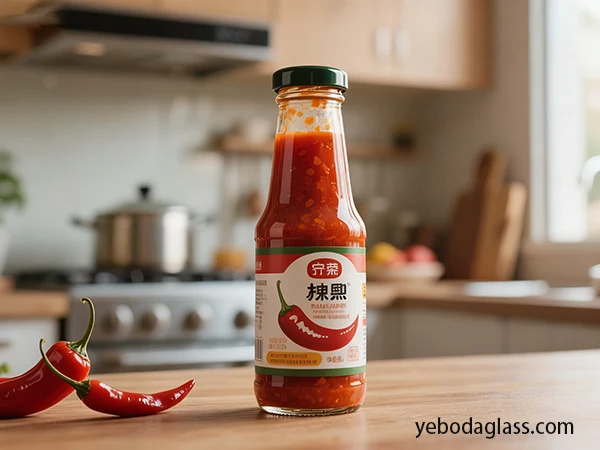
The Strategic Imperative of Direct Sourcing
Manufacturers of glass hot sauce bottle wholesale coupled with a direct relationship lead to procurement being regarded as a strategic partnership. Some of the benefits that brands receive are:
- Cost efficiency
- Supply chain transparency
- Risk mitigation
- Increased product uniqueness
With packaging being transformed by both sustainability and technology, it will be the global hot sauce industry’s competitive advantage to be the first to adopt the changes and collaborate with the factory.

